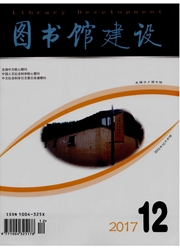

 中文摘要:
中文摘要:
慕课提供了丰富的在线教育资源和开放式的互动学习体验,但"漏斗效应"依然普遍地存在于慕课学习过程中,表现为潜在学习参与者发展成为忠实学习者的过程受到众多因素的影响。慕课平台使用意愿研究模型的构建基于Davis的经典技术接受模型,并从可控性、资源性和交互性3个方面引入了平台可控性、过程可控性、感知资源性、连接性和响应性作为前因变量。
 英文摘要:
英文摘要:
MOOC(Massive Open Online Conrses) provides tremendous online education resource and open interactive learning experience. While" Funnel Effect" widely exists during the process of MOOC learning, which means there are many factors influencing potential attendees developing into loyal learners. MOOC platform adoption intention model constructs on the base of Davis typical technology acceptance model, and introduces platform controlability, process contralability, perceiving with resources, connectivity and responsiveness as antecedent variables from the three aspects of controlability, resources and interactivity.
 同期刊论文项目
同期刊论文项目
 同项目期刊论文
同项目期刊论文
 期刊信息
期刊信息
